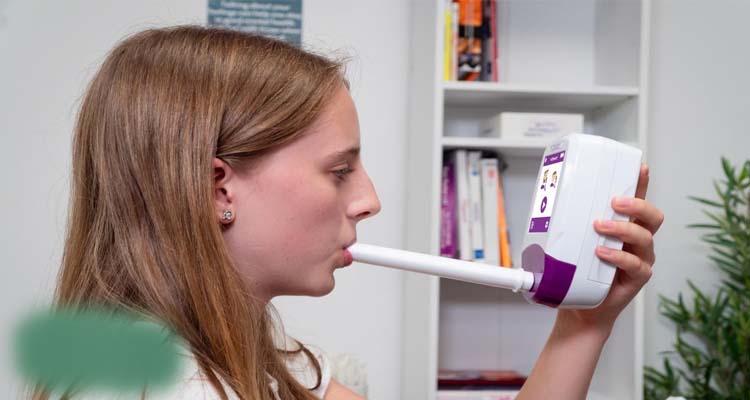DR. BRIJESH PRAJAPAT
MBBS, MD, DM
(PULMONARY & CRITICAL CARE MEDICINE)

A FENO test or exhaled nitric oxide test, in patients with allergic or eosinophilic asthma, is a way to determine how much lung inflammation is present and how well inhaled steroids are suppressing this inflammation. With allergic or eosinophilic asthma, sometimes you may feel your breathing is fine, but when you measure your exhaled nitric oxide, it may still be significantly elevated, and you might do better in the long-term using slightly more of your inhaled steroid to suppress this inflammation
Nitric oxide is a gas produced by cells involved in the inflammation associated with allergic or eosinophilic asthma.
The Feno test, which stands for the fractional concentration of exhaled nitric oxide, is performed using a portable device that measures the level of nitric oxide in parts per billion (PPB) in the air you slowly exhale out of your lungs. The exhaled nitric oxide test is different from most lung function tests in that you need to blow slowly and steadily, not hard and fast, to get an accurate measurement.
Your allergist may check your exhaled nitric oxide level to see if you have the typical inflammation associated with allergic or eosinophilic asthma during the process of establishing the diagnosis of allergic or eosinophilic asthma. Your allergist may then recheck the nitric oxide level to verify the steroid inhalers you are using are suppressing the nitric oxide level.
Successful control of your asthma depends upon a partnership between you and your allergist. Your allergist can use data from FeNO testing along with spirometry and other lung function tests to design and adjust your medication to keep your asthma under optimal control.